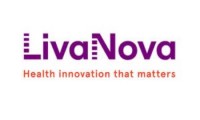-
Darzalex Faspro in Multiple Myeloma, Imbruvica-Venclexta in Mantle Cell Lymphoma
- Source: drugdu
- 114
- November 25, 2023
-
Smith+Nephew to buy CartiHeal and its knee cartilage healing tech
- Source: drugdu
- 136
- November 25, 2023
-
InDex Scraps Phase III Ulcerative Colitis Trial on Disappointing Data
- Source: drugdu
- 134
- November 24, 2023
-
Another medtech reports a cybersecurity incident
- Source: drugdu
- 96
- November 24, 2023
-
Merz strengthens its global footprint with botulinum approval in Australian market
- Source: drugdu
- 92
- November 24, 2023
-
To address shortage, Novo Nordisk will cut production of Victoza to boost supply of Ozempic
- Source: drugdu
- 151
- November 24, 2023
-
The Impact of US Drug Shortages on the Supply Chain
- Source: drugdu
- 106
- November 23, 2023
-
Merck & Co bolsters neurogenerative portfolio with Caraway acquisition
- Source: drugdu
- 104
- November 23, 2023
-
With filing in Sanofi and Mylan insulin lawsuit, FTC amps up scrutiny on pharma’s patent tactics
- Source: drugdu
- 98
- November 23, 2023
-
What One Medicaid Insurer Looks for From Potential Health Tech Vendors
- Source: drugdu
- 97
- November 22, 2023
your submission has already been received.
OK
Subscribe
Please enter a valid Email address!
Submit
The most relevant industry news & insight will be sent to you every two weeks.













